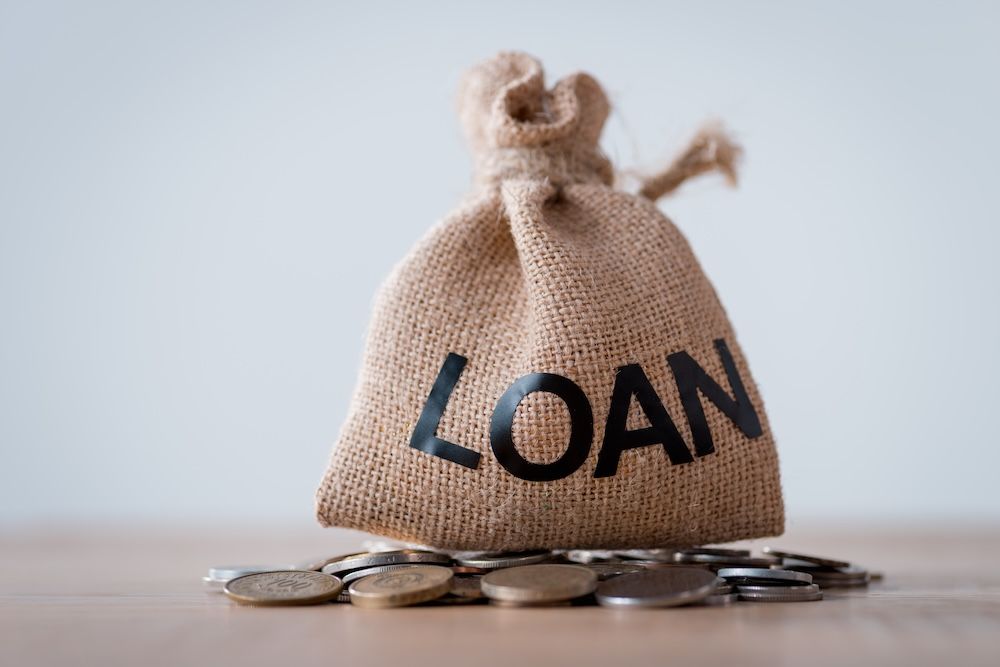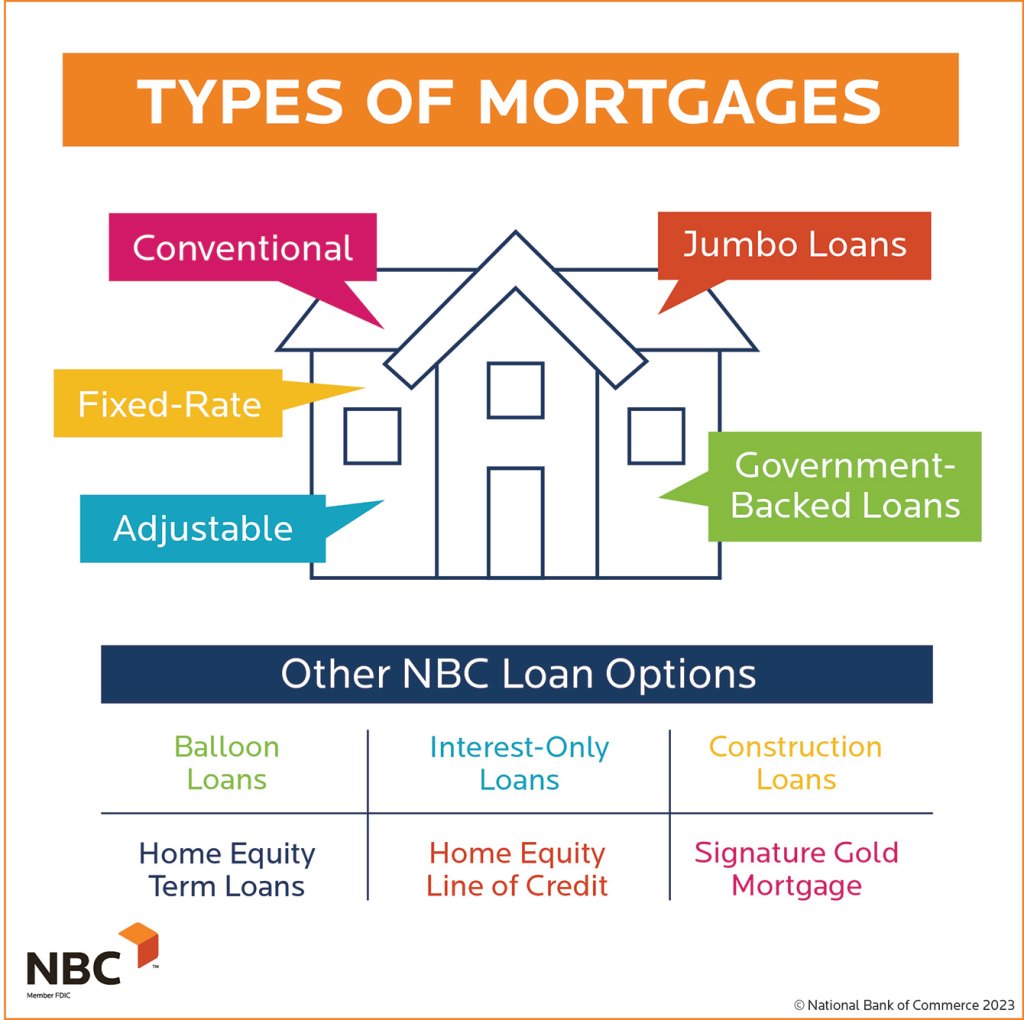Learn smart ways to manage your finances with Cash Loans
Wiki Article
A Comprehensive Overview to Home Loans: Solutions and Options Explained
Charting the globe of home mortgage can be complicated. Different choices exist, each with distinct attributes and effects for possible house owners. Understanding the distinctions in between government-backed and traditional lendings is necessary. Furthermore, the application process includes careful documents and pre-approval actions that many ignore. As debtors begin on their home-buying journey, understanding exactly how to handle these responsibilities effectively can mean the distinction in between economic security and difficulty. What approaches can encourage them on this course?Recognizing Home Loans: Kinds and Terms
Recognizing the numerous kinds of home mortgage and their linked terminology is important for potential property owners, as it furnishes them with the knowledge required to make enlightened monetary decisions. Home mortgage can be extensively classified into fixed-rate and adjustable-rate home loans. Fixed-rate mortgages maintain a consistent rate of interest over the life of the lending, supplying stability in month-to-month settlements. Cash Loans. On the other hand, adjustable-rate home mortgages include rate of interest prices that may rise and fall after a preliminary fixed period, possibly resulting in lower preliminary payments however enhanced future expensesExtra terminology is essential for clearness. Principal refers to the financing quantity borrowed, while passion is the expense of loaning that quantity. The term of the financing suggests its period, usually varying from 15 to thirty years. Comprehending these essential principles makes it possible for prospective purchasers to browse the facility landscape of home financing, guaranteeing they pick the ideal loan choice that straightens with their monetary scenario and long-lasting objectives.
Conventional Lendings vs. Government-Backed Loans
A significant difference in home financing exists in between government-backed lendings and traditional finances, each satisfying various consumer demands and scenarios. Traditional car loans are not insured or ensured by the federal government and commonly call for greater credit score ratings and down payments. They are frequently interesting consumers with stable monetary histories, as they might supply competitive rates of interest and terms.In comparison, government-backed lendings, such as FHA, VA, and USDA loans, are made to help specific teams of consumers, consisting of new buyers and veterans. Fast Cash. These lendings typically include reduced deposit requirements and even more flexible credit history requirements, making them obtainable to a wider variety of individuals
Ultimately, the selection in between conventional and government-backed loans depends upon the consumer's monetary circumstance, long-lasting objectives, and qualification, making it important to very carefully assess both choices before deciding.

The Duty of Rate Of Interest in Home Funding
Rate of interest play an important role in home financing, influencing debtors' decisions in between variable and set price fundings. The option between these choices can considerably impact monthly payments, influencing overall cost. Understanding exactly how rate of interest operate is crucial for anyone maneuvering through the mortgage procedure.Taken Care Of vs. Variable Rates
Property buyers deal with a crucial choice when selecting between taken care of and variable rates, as this option significantly affects the price of financing gradually. Fixed-rate home mortgages provide stability, securing a rates of interest for the life of the loan, which can be helpful in an increasing rates of interest setting. This predictability allows home owners to budget plan much more properly. On the other hand, variable-rate home loans, or adjustable-rate home mortgages (ARMs), normally start with reduced first rates that can fluctuate based on market problems. While this may cause lower preliminary settlements, consumers face the threat of increased prices in the future. Eventually, the selection between fixed and variable rates depends on specific monetary circumstances, risk resistance, and assumptions concerning future rates of interest trends.Effect On Regular Monthly Settlements
When reviewing home financing options, the effect of rates of interest on month-to-month payments is an essential factor to ponder. Rate of interest rates straight influence the general expense of loaning, influencing just how much a customer will certainly pay every month. A reduced rate of interest lead to smaller monthly payments, making homeownership extra economical. Conversely, greater prices can substantially raise month-to-month obligations, possibly stressing a home owner's budget plan. Furthermore, the financing term plays an important function; longer terms might spread repayments out yet can lead to paying more passion with time. Understanding exactly how rate of interest connect with lending amounts and terms is important for borrowers to make enlightened economic decisions and choose a mortgage that straightens with their long-lasting economic objectives.Home Mortgage Brokers vs. Direct Lenders: Which Is Right for You?
When considering a home loan, prospective consumers should recognize the distinctive duties and obligations of mortgage brokers and straight lending institutions. Each option presents its very own advantages and disadvantages, which can significantly affect the total price of financing. An enlightened choice calls for cautious analysis of these factors to identify the ideal fit for specific demands.Roles and Responsibilities Defined
Maneuvering the intricacies of home funding needs a clear understanding of the roles and obligations of mortgage brokers and direct lenders. Home loan brokers act as intermediaries, attaching borrowers with lending institutions. They evaluate a debtor's financial scenario, curate lending alternatives, and overview customers through the application process, often leveraging several lender partnerships to secure desirable terms. Conversely, straight loan providers, such as financial institutions and credit scores unions, give fundings straight to consumers. They handle the entire funding procedure, from application to funding, with a concentrate on their very own items. Each choice offers distinctive methods for getting financing, making it necessary for consumers to evaluate their needs and preferences when choosing in between involving a mortgage broker or collaborating with a straight lender.Cons and pros Comparison
Picking in between a home mortgage broker and a straight loan provider can greatly impact the home financing experience, as each option offers distinct benefits and disadvantages. Home loan brokers serve as intermediaries, providing accessibility to numerous lending institutions and potentially better rates, while streamlining the loan procedure. Nevertheless, they might charge fees and depend on commission frameworks that can affect their suggestions. On the various other hand, direct lenders improve the process by using in-house visit their website fundings, which can lead to faster authorizations and less problems. Alternatively, they may have a minimal option of products and less versatility concerning prices. Inevitably, the choice depends upon specific preferences, monetary situations, and the wanted level of assistance throughout the mortgage trip.Cost Effects Examined
While examining the cost ramifications of home mortgage brokers versus direct lending institutions, prospective homeowners need to take into consideration various factors that can considerably influence their overall costs. Home mortgage brokers generally charge costs for their services, which can vary considerably, influencing the general loan price. They usually have accessibility to a larger range of lending products and competitive rates, possibly saving debtors cash in the long run. Alternatively, direct lenders may offer an extra simple process with potentially reduced ahead of time costs, but their finance choices may be restricted. It is necessary for homeowners to contrast rates of interest, charges, and terms from both loan providers and brokers, ensuring they make an informed choice that straightens with their economic objectives and requirements.The Mortgage Application Process: What to Expect

The home mortgage application process can often feel intimidating for numerous candidates. It typically begins with gathering needed documents, consisting of proof of income, credit rating, and personal recognition. Lenders utilize this info to assess the candidate's monetary security and figure out finance eligibility.
Next off, candidates submit a formal application, which may entail submitting on the internet types or giving information personally. During this stage, lenders review numerous factors, such as debt-to-income ratio and credit history score, to select finance terms.
As soon as pre-approved, the lender will conduct an extensive evaluation of the building to identify its worth lines up with the finance amount. This stage might likewise include added history checks.

After final approvals and problems are fulfilled, the loan is processed, bring about the closing stage. Recognizing each action equips applicants, making the journey smoother and more manageable as they approach homeownership.
Tips for Managing Your Home Car Loan Sensibly
Effectively maneuvering the mortgage application process is simply the beginning of a responsible economic trip. Handling a home financing calls for attention to numerous vital techniques. Initially, borrowers must establish a clear budget plan that suits month-to-month mortgage repayments, real estate tax, and insurance coverage. Routinely evaluating this budget aids prevent overspending and warranties timely settlements.In addition, making additional payments when feasible can significantly decrease the car loan principal and complete rate of interest paid with time. Borrowers need to likewise preserve open lines of interaction with their lending institution, particularly in times of monetary problem. This can cause potential options such as financing alterations or refinancing choices.
It is a good idea to check debt scores on a regular basis. A great credit report can give chances for far better lending terms in the future. Fast Cash. By adhering to like this these tips, homeowners can navigate their financing obligations properly, assuring long-term monetary health and security
Frequently Asked Concerns
What Are Closing Prices and Just How Are They Computed?
Closing expenses incorporate costs related to wrapping up a mortgage, consisting of assessment, title insurance coverage, and car loan source costs. These prices commonly range from 2% to 5% of the financing amount, differing based upon area and loan provider.Can I Get Approved For a Home Funding With Bad Credit Rating?
Yes, individuals with negative credit score can get a home finance, though choices may be restricted. Lenders commonly need greater down repayments or interest rates, and exploring government-backed lendings might boost chances of approval.What Is Home mortgage Insurance and When Is It Needed?
When a debtor makes a down settlement of less than 20%, mortgage insurance coverage safeguards lending institutions against default and is generally required. It ensures that lending institutions recuperate losses if the customer falls short to settle the financing.Exactly How Does Refinancing Work and When Should I Consider It?
Refinancing includes changing an existing home loan with a brand-new one, typically to protect a lower rate of interest rate or change lending terms. House owners ought to consider refinancing when rate of interest go down considerably or their financial circumstance enhances.What Takes place if I Miss a Home Mortgage Payment?
If a home mortgage repayment is missed out on, the lending institution generally examines late costs, reports the delinquency to credit report bureaus, and might initiate foreclosure procedures if payments remain to be disregarded, eventually endangering the homeowner's building.Fixed-rate mortgages keep a regular interest price over the life of the lending, offering stability in regular monthly settlements. A substantial difference in home funding exists between government-backed loans and standard financings, each catering to different borrower requirements and situations. In contrast, government-backed lendings, such as FHA, VA, and USDA loans, are made to assist specific groups of customers, consisting of new homebuyers and experts. Passion prices play a vital role in home financing, affecting consumers' choices between variable and set price fundings. Fixed-rate mortgages supply security, locking in an interest price for the life of the finance, which can be beneficial in a find more climbing interest price atmosphere.
Report this wiki page